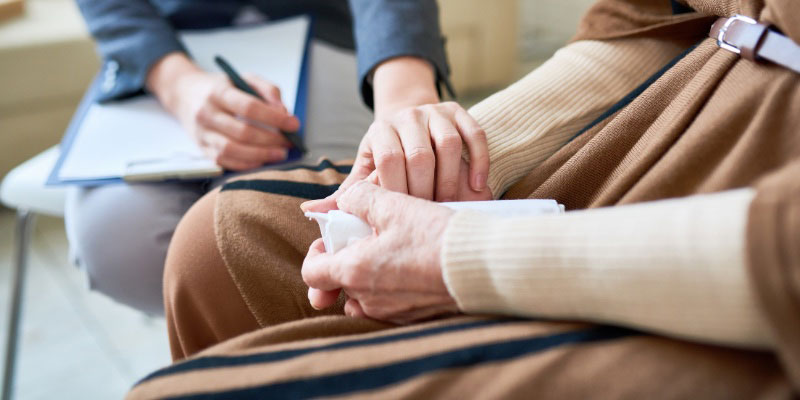Hospice care provides your loved one and your family with various types of support. While this support is helpful and relieving, the onset of hospice care also has emotions associated with realizing that your loved one has transitioned to end-of-life care.
During this process, you and your family are likely to experience grief and its associated emotions, and processing these feelings is important for everyone's wellbeing. Let's talk about some hospice grief support strategies to help you cope during this time.
Be Compassionate With Yourself
Try not to be too hard on yourself, and aim to understand that grief is normal, and you're likely going through stages of grief. The generally accepted five stages of grief include denial, anger, bargaining, depression, and acceptance.
Your path may vary somewhat, but the point is to see that what you are going through is normal and understand yourself. If you can, also try to understand that your loved ones may process their grief differently than you.
Face Your Grief
While you may not be ready for grieving emotions and experiences at times, try not to avoid the grief altogether. When suffering is ignored or pushed down, it can hit you harder later. Addressing your grief bit by bit can make it more manageable.
Recognize that grieving is not weakness. Instead, it is a normal human response to losing someone you love. Try to let yourself grieve, whatever that means to you. Overall, facing your grief means recognizing what you feel and allowing time and space for those feelings rather than pushing it away or pretending it's not there.
Use Tools to Help
Spend time on activities and tools that help you handle your grief. These will likely vary depending on your personality and preferences.
Examples of Helpful Activities
- Journaling
- Watching or listening to comedy
- Spending time in nature
- Being creative through arts, crafts, baking, music, writing, or other means
- Following mindset practices
Try self-care activities that help you take care of yourself. These activities promote your health or put a focus on yourself for a while.
Examples of Self-Care Activities
- Exercising
- Meditating or deep breathing
- Taking a bath
- Eating a healthy meal
- Getting away on a vacation
- Visiting health practitioners
Allowing time for yourself is crucial to avoid becoming overwhelmed or burnt out while supporting your loved one in hospice care.
Reach Out to Others
While you may have the urge to be alone, try to stay connected to other people as much as you can. This may include talking with other loved ones who are going through this experience with you or asking for support from other people in your life who are close to you. You may consider joining a volunteer group or class so you can feel connected to others and your community.
Also, think about reaching out for professional support through individual grief counseling or a support group, including professional guidance and other people going through their own grieving experiences. The hospice facility supporting your loved one likely offers a support group or similar forms of support to loved ones. Consider help from a professional grief counselor or therapist—especially if you are struggling with the grief and can't seem to cope.
Allow Your Own Grieving Process
Everyone’s grieving process is an individual experience. You do not have to follow the stages of grief precisely or finish grieving within a specific time. It may help you cope by understanding that your grieving process may look different from someone else’s, and that’s okay.
Tips for Following Your Grieving Process
- Don't try to follow a timeline of grief, even if other people encourage it.
- Allow your grieving process to carry itself out naturally.
- Realize that the goal is not to get over the pain or forget about it. Instead, aim to go through your process of grieving and acceptance.
- Know that the pain can still come and go after you have reached acceptance. This is normal, as it is hard to lose a loved one—and you will never forget them.
Grieving is a normal human process as you face the upcoming loss of someone and after that loss. Hopefully, these hospice grief support strategies will help you cope. If you find yourself particularly struggling, know that professional support is available.





